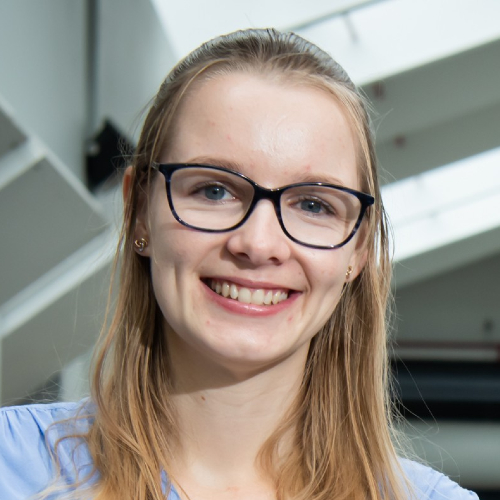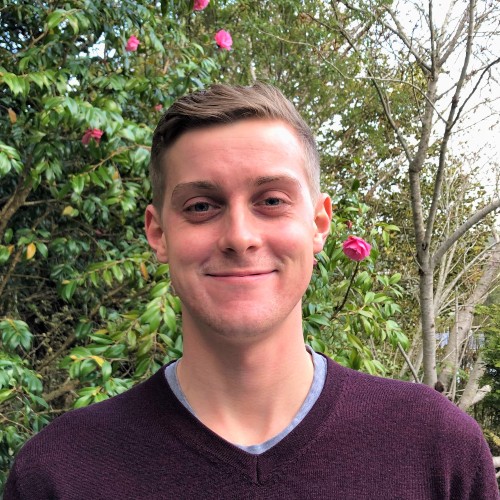
Master of Architectural Science – MArchSc
Extend your expertise in building science and focus on managing the development and ongoing performance of the built environment. Increase your understanding of the connections between architecture, engineering, testing, and building research.
The people you work with and learn from are an important part of your studies. Learn who the teaching staff are and hear what the programme is like.
Academic staff
- Dr Atie AhmadiDr Atie Ahmadi—Advanced contemporary project management, construction health and safety
- Dr Fabricio ChiccaDr Fabricio Chicca—Sustainability in urban areas, tangible and intangible values of the real estate market, building information modelling (BIM), urban agriculture, project management
- AProf Michael DonnAProf Michael Donn—Net Zero Energy buildings, daylight and natural ventilation in the workplace, urban wind comfort and safety, building aerodynamics and heating, cooling, acoustic and lighting performance
- Dr Wallace EnegbumaDr Wallace Enegbuma—Sustainable construction throughout the building lifecycle using building information modelling (BIM), construction management, IT, law, and risk
- Dr Nigel IsaacsDr Nigel Isaacs—Energy and water use in non-residential buildings, history of building technologies in New Zealand
- Guy MarriageGuy Marriage—Urban space, significance of social space, construction technology, prefabrication technology, sustainable building technology, New Zealand architectural history
- Jacqueline McIntoshJacqueline McIntosh—Sustainability in housing (including issues in culture, construction innovation, and disaster recovery), architectural pedagogy, social constructivist theories of teaching and learning
- Dr Chitrakala MuthuveerappanDr Chitrakala Muthuveerappan—Artificial neural networks in construction and project management; mathematical modelling and prototypes for construction project management; building code automation on BIM drawings; construction supply chains for effective construction project management

Georgia Alexander
Graduate, Master of Architectural Science
I liked the idea of Architecture, but the logic and science of the Architectural Science programme drew me to the Postgraduate Diploma, and then onto the Master of Architectural Science.
Deepening knowledge
After completing her Bachelor of Building Science with a double major in project management and sustainable engineering systems at Te Herenga Waka—Victoria University of Wellington, Georgia wanted to develop her studies further.
Her Master’s research explored the potential energy savings of occupancy sensors in spaces that are intermittently used.
“I believe that it is important for us as building designers to allow developing and changing technology to improve our buildings. However, sometimes old habits, technology, and building uses can restrict that idea.
“My research investigated the potential energy savings of occupancy sensors in hallways, stairwells, seminar rooms, and lavatories of an education building. Lighting is one of the largest consumers of energy in the building industry, and these space types are often fully illuminated for long periods of vacancy, despite the fact that lighting is for the user, not the building.”
The three-month-long experiment used a variety of sensors to measure light energy use and occupant use of 20 intermittent-use spaces. The results of the experiment encouraged the use of occupancy sensors in intermittent-use spaces.
Award-winning research
While working on her Master’s degree, Georgia won the New Zealand Institute of Building’s award for top student in a construction-focused degree programme, and also took home the institute’s supreme award at the event.
“It was such a wonderful surprise to be nominated, and then win. It was especially rewarding as I was nominated by the Building Science programme director, not only in recognition of my research work, but also because of my extracurricular roles. At the time, I was a senior tutor and had been a class representative.”
Developing career paths
As she studied for her Master’s degree, Georgia worked part time for Norman Disney and Young, an engineering consultancy based in Wellington. She now works for them full time as part of their graduate programme.
“The graduate programme allows me to further my knowledge of each of the building service disciplines, including mechanical, electrical, hydraulic, and fire safety. I hope to one day lead a team of building service engineers.”

Jackson Prattley-Jones
Graduate, Postgraduate Certificate in Architectural Science (Sustainable Engineering Systems)
The knowledge I gained from studying at the Wellington School of Architecture has helped me immensely. It’s given me the theoretical background of building science which I now use every day in my current role.
Spark of interest
Jackson’s interest in architecture began at a young age. “I have vivid memories of spending Christmases at my grandparent’s Ian Athfield-designed house in Christchurch. This sparked my interest in the way buildings are designed and built,” he says.
After beginning his studies as a Bachelor of Architecture student, Jackson realised in his second year that his interests lay more in the building science programme, specifically Sustainable Engineering Systems. “I had always enjoyed getting out into the bush and mountains growing up, and I wanted to make sure the buildings that were being built in the future did not degrade the natural environment further.”
After completing his Bachelor of Building Science Jackson moved on to the Postgraduate Certificate in Architectural Science. “I was drawn to the programme by its focus on how buildings should be built for the comfort of occupants and the impact this has on the environment.”
Building better
Jackson’s coursework explored how to design and simulate buildings in New Zealand that offer greater levels of comfort while using less energy. “These explorations culminated in designing and simulating net-zero energy buildings in Wellington and California. Understanding the theory and physics behind the energy balances of a building, such as heat gain in vs heat loss out, was key to carrying out these projects,” explains Jackson. He was excited to see that better buildings could be built. And that energy simulation has a large role to play in doing so.
Applying knowledge
After graduating Jackson started working as a Home Energy Assessor at Sustainability Trust. “Each day I am travelling around the Wellington region assessing home-owners' properties and educating them on what they can do to ensure their home is warmer, drier, and healthier. The knowledge I gained from studying at the Wellington School of Architecture has helped me immensely. It’s given me the theoretical background of building science which I now use every day in my current role–helping people in the Wellington region improve the warmth and overall health of their homes.”
Previous
RequirementsNext
How to apply

